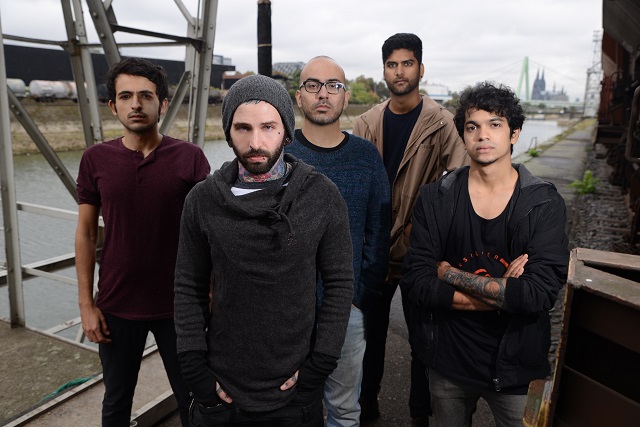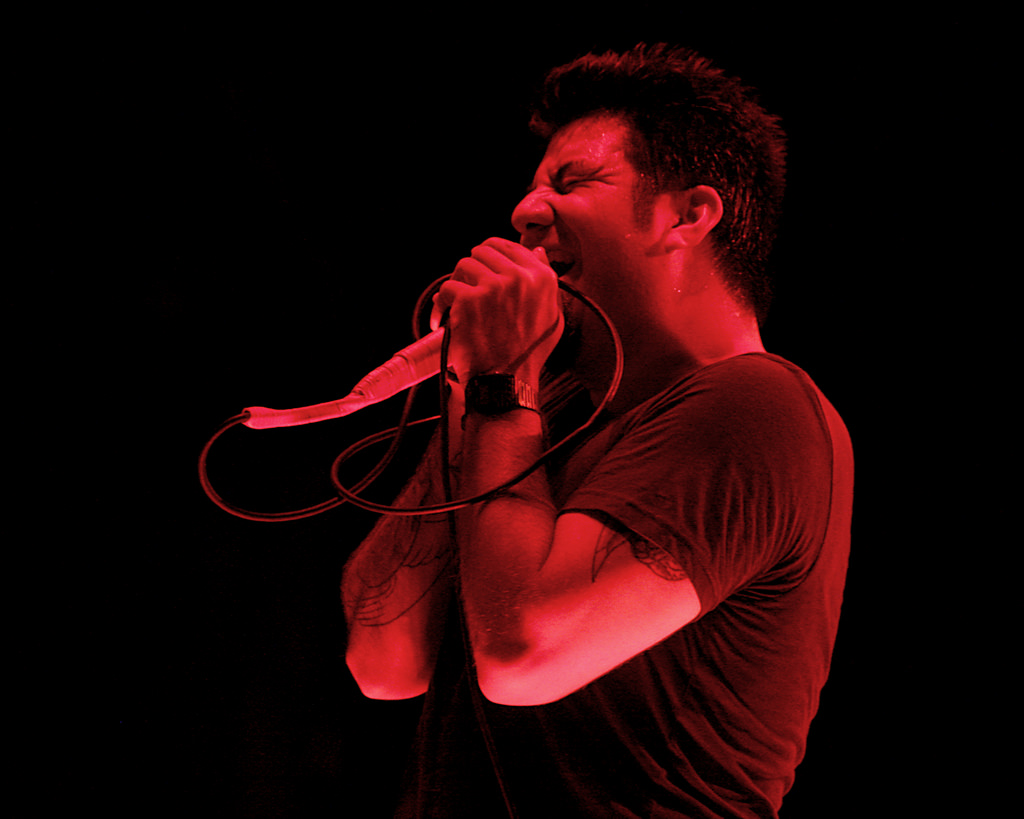The Contortionist: Mom Metal Heroes
American prog metallers The Contortionist’s frontman Michael Lessard on gaining a new fan base

Joey Baca, Eric Guenther, Cameron Maynard, Michael Lessard, Robby Baca and Jordan Eberhardt (from left). Photo: Press image
American prog metal band The Contortionist have found the unlikeliest fans in headbanging moms who’ve been flocking to their shows after they released their third album Language in 2014. Says vocalist Michael Lessard, “I feel like it’s an old-ish fanbase. From some of the shows on this tour, we’ve actually had kids come out and they’ve brought their mothers with them as well. The mothers have watched the set and told me how much they’ve enjoyed the album.” On Language, The Contortionist display a much more evolved, delicate sound, which breaks away from their early deathcore influence into lighter, cleaner but technical prog metal. As a result, Language, which released in September last year, brought in a wider fold of prog fans and cracked the Billboard 200 chart, debuting at number 52. Says Lessard about the album, his first since he joined the band in 2013, “We didn’t really have any set goals when we wrote the album. We just wanted to write a nice, cohesive piece of music we could really enjoy.”
In a phone interview from Paris with ROLLING STONE India, Lessard talks about how he got a week’s notice to join The ContorÂtionist, writing the concept for Language and his favorite albums by bands who reÂvamped their sound.
RS: How are things in Paris? You’re on tour right now with [Canadian prog metal band] Protest the Hero and [BritÂish prog metal band] The Safety Fire, right?
Michael Lessard [ML]: I’ve known the Protest the Hero guys for a few years now, so it’s nice to be on the road with them again. I’ve toured with the Safety Fire in the US beÂfore, it’s kinda cool to come to Europe and travel around with some friends.
So it’s like being in new places with friends?
It’s like a big road trip and you play music on it. [laughs]
Joey [Baca, drummer] mentioned that Language was quite a stressful album to make. What made it a tough album?
I feel like every album is stressful, no matter what. We put so much pressure on ourselves to make a good album, but I feel like we’re getting older, we have more of a viÂsion of what we want to do with the music. I think we did that and we’re very happy with how the album came out.
I still remember reading an interview you did around the time you joined the band in 2013. How come you just got a week’s notice?
Yeah, it was crazy [laughs]. It was a fun challenge, though. I like to challenge myself.
The band had actually just done a tour with [alt metal band] Deftones and I’d acÂtually gone and hung out with them and helped them out on stage. Basically, when they got home, Jon [Carpenter, vocalist] had found out that he has having a kid and he decided to step away from the band and get ready for that. They already about two months of touring lined up, so they called me and said, ”˜Hey, this [tour] is happening in a week and a half.’ And I said, ”˜Well, I can try’ and here we are. [laughs]
The Contortionist began edging toÂwards that prog metal sound with ExoÂplanet [2010] and Intrinsic [2012], but it sounded pretty fresh when it had that deathcore element to it. On Language, there’s much more of prog. Was there anything in particular that leads to an evolution like this?
I think it’s just that we matured as muÂsicians. We didn’t really have any set goals when we wrote the album. We just wanted to write a nice, cohesive piece of music we could really enjoy. When we went to write it, we didn’t put any expectations on ourselves and we just wrote it. I felt that contributed to the fact that it sounded different. It’s one of those things that we didn’t put pressure on ourselves about what the album should sound like. It just turned into what it is.
Could you tell me a bit about the concept behind the album?
It’s very much of a story. Like any great story should, it has two contrasting ideas. Whether you like Star Wars, which has the Dark Side and the Force, there are two forcÂes. Even most Biblical stories.
So it’s like dualism?
Yeah. You need to have those two conÂtrasting things as well in the story. What I used was the intuitive process and the calcuÂlation. Those were the two contrasting forcÂes that I used, in the form of a story. It’s a story based in metaphor, but it’s one of those things where I like to leave it open to interÂpretation, because I want the listener to get what they want to get out of it. Their life exÂperiences dictate what the album means to them.
Was writing concept lyrics and albums something you were doing with your preÂvious band, [prog metallers] Last Chance to Reason, as well?
I learnt a lot from my previous band, just because the person I worked with on the lyrÂics in my previous band is an English major and he’s a very brilliant writer. He taught me many things, just working with him, that I applied with this band as well. Basically, I also drew influence from storytellers that are a little off-centered and not from music, like [filmmaker] Stanley Kubrick. I love the stories that he tells not only with a movie’s dialog, but with camera angles and the stuff that he shows you in the background and the imagery. I listen to a bunch of philosophers like Alan Watts, a bunch of psychology ”“ Carl Jung, Freud and stuff like that ”“ I draw inÂfluence from a bunch of difÂferent places and pull it in and try to make my own thing out of it.
Which of your three faÂvorite albums included a drastic shift in sound that changed your music tastes?
Oh right, okay. I wanna make sure I pick all the right albums. Probably I’d say:
Deftones ”“ White Pony. It came out around the time I was a teenager and it kinda changed the way I looked at rock music, and especially radio rock music, because they [Deftones] got a large radio presence in the States. Abe [CunningÂham], their drummer, has some of the best drum grooves.
Any album by King Crimson. They changed the way that I heard music in genÂeral. Those guys have no rules or boundarÂies. Probably from them, The Power to BeÂlieve is their one monumental album.
And then, I guess Slipknot, self-titled. It’s definitely what got me into heavy music and into the metal world, which then in turn shifted me into more progressive music.
Lastly, I know Language really got a lot of listeners in India tuned into The ConÂtortionist. Have you got any offers to play here? What is your schedule like for the coming year?
I know we have to go home for the holiÂdays and then we’re going to do some shows in the States and then I believe we’re coming back to Europe. Nothing planned for India yet, but we really want to come to India. It’s a place we always wanted to play. If enough people make a noise about it, we’ll be comÂing to India in 2015.
This article appeared in the January 2015 issue of ROLLING STONE India.







